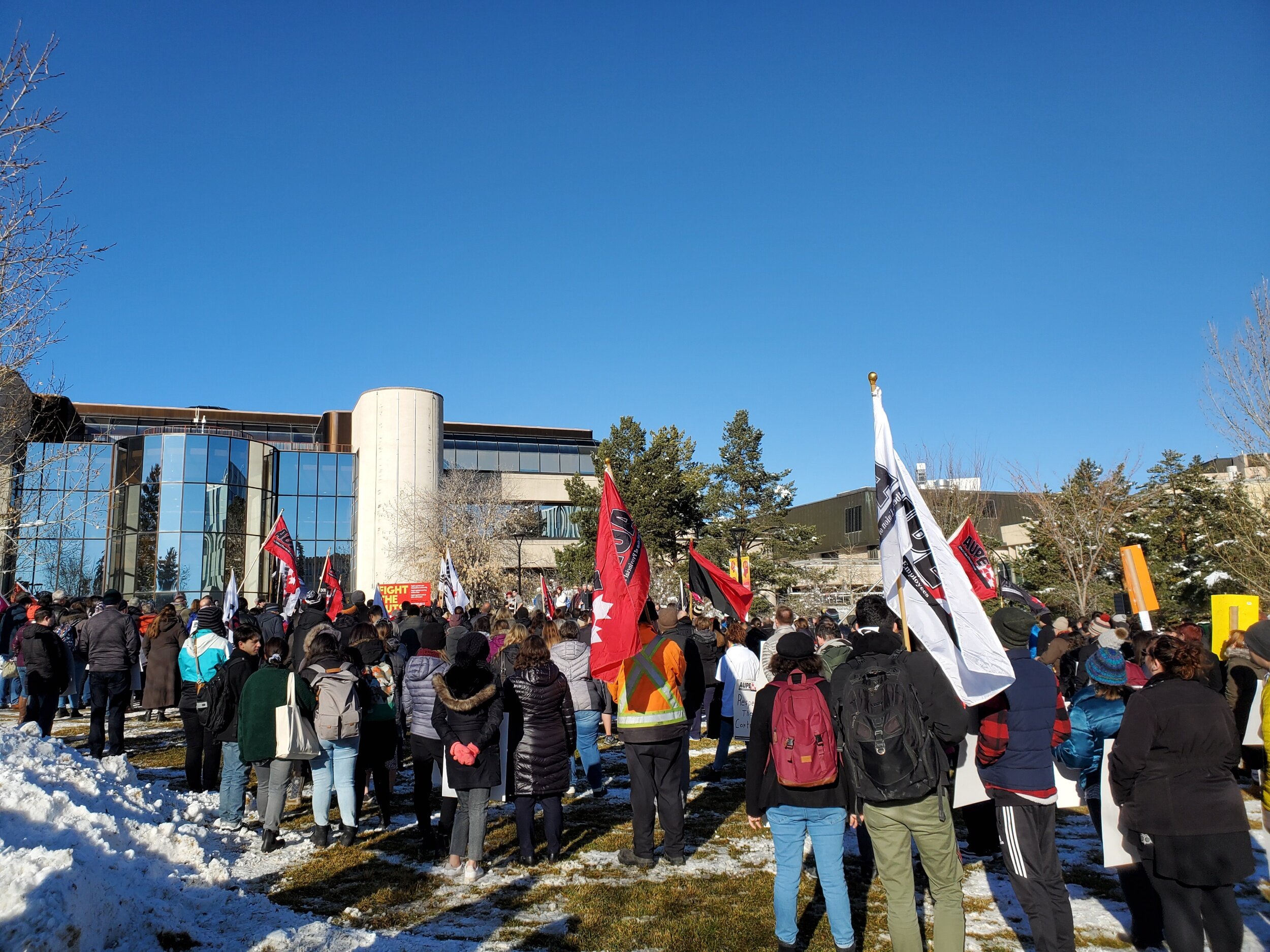Written By Guest User, Posted on December 28, 2019

The commitment to free speech at post-secondary was a crucial component of the provincial government’s platform, which has born many fruits as of late.
In mid-July, Keyano College was the first to adopt the “gold standard” consistent with the Chicago Principles. Its Board of Governors mandated free speech on campus, as of July 11th, highlighting the role of the individual in determining which ideas remain pertinent to an ongoing debate. Critics retort the move as a dog whistle or trojan horse for harmful expression on campus.
Keyano College in Northern Alberta.
According to the MP for Fort McMurray-Cold Lake, David Yuridga, “Freedom of speech allows healthy debate in all types of forums such as classrooms, public venues and [on] social media.”
“It is important that all educational institutions have a policy where all speech is protected and healthy debate [is encouraged].”
Dating back to 1902, the University of Chicago President William Rainey Harper stated that “the principle of complete freedom of speech on all subjects … can neither now nor at any future time be called in question.”
Thirty years later, President Robert M. Hutchins defended the University’s decision to invite the Communist Party’s candidate for President, to which he said, “[the solution to ideas we oppose] lies through open discussion rather than through inhibition.”
In the Report of the Committee on Freedom of Expression, President Hutchins states, “free inquiry is indispensable to the good life … universities exist for the sake of such inquiry, [and] that without it, they cease to be universities.”
In the pursuit of civility, progress and the evolution of ideas, such is had organically when free expression triumphs over censorship. Civility and respect do not become subjective because of our predispositions. We respect the views of others, and not solely those we adhere to.
Giving one a platform to espouse their beliefs does not become any more or less legitimate because they are “perceived to be unwelcome, controversial, offensive, unwise, immoral, or objectionable, nor should debates or deliberations in these instances be suppressed,” according to the University of Calgary’s Statement on Free Expression.
Academic Boycotts, including the obstruction of ‘unwanted speakers,’ were not endorsed in the findings presented by the document. But, expressions prohibited by law, including a genuine threat or harassment, discrimination, defamation, etc., were condemned.
Stemming from the Chicago Principles of Free Expression that was developed by the University of Chicago in 2014, limitations to free speech exist.
“Freedom of speech in its concept seems simple, but there are intricate lines on what types of speech should be protected,” says Yuridga. “We, as a society, should never condone speech that encourages violence.”
“However, for the last decade, we have seen across the country, at colleges and universities, where guests were heckled, shouted down, disinvited and threatened with violence because of opposing views on climate change, gender identity and politics.”
In the University of Calgary’s Statement on Free Speech, “an environment of respect and civility to fulfill its purpose” is advocated to ensure “all voices have an opportunity to be heard and multiple viewpoints can be advanced.”
It’s Students’ Union President, Jessica Revington, believes, “The introduction of the university’s statement on free expression formalizes what the Students’ Union has always believed – that universities should be places where free, open, and respectful discussions can take place.”
“Students were consulted during the creation of the statement, and the published statement reflects student feedback around prioritizing equitable, diverse, and respectful dialogue.”
Very well presented. Every quote was awesome and thanks for sharing the content. Keep sharing and keep motivating others.